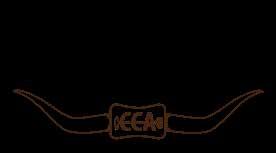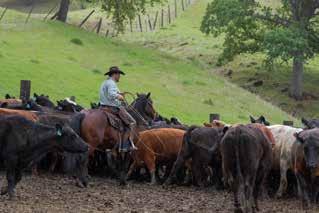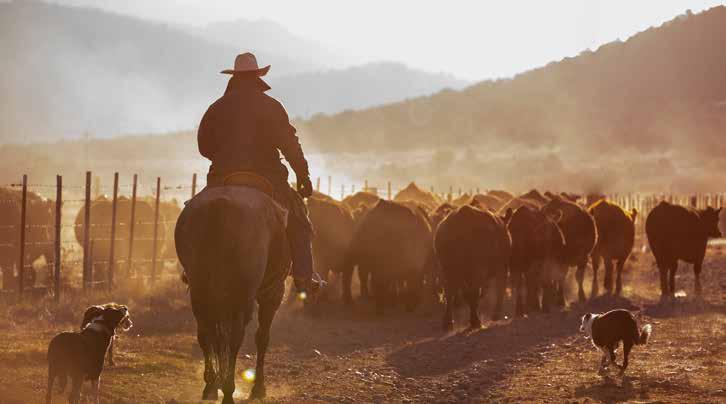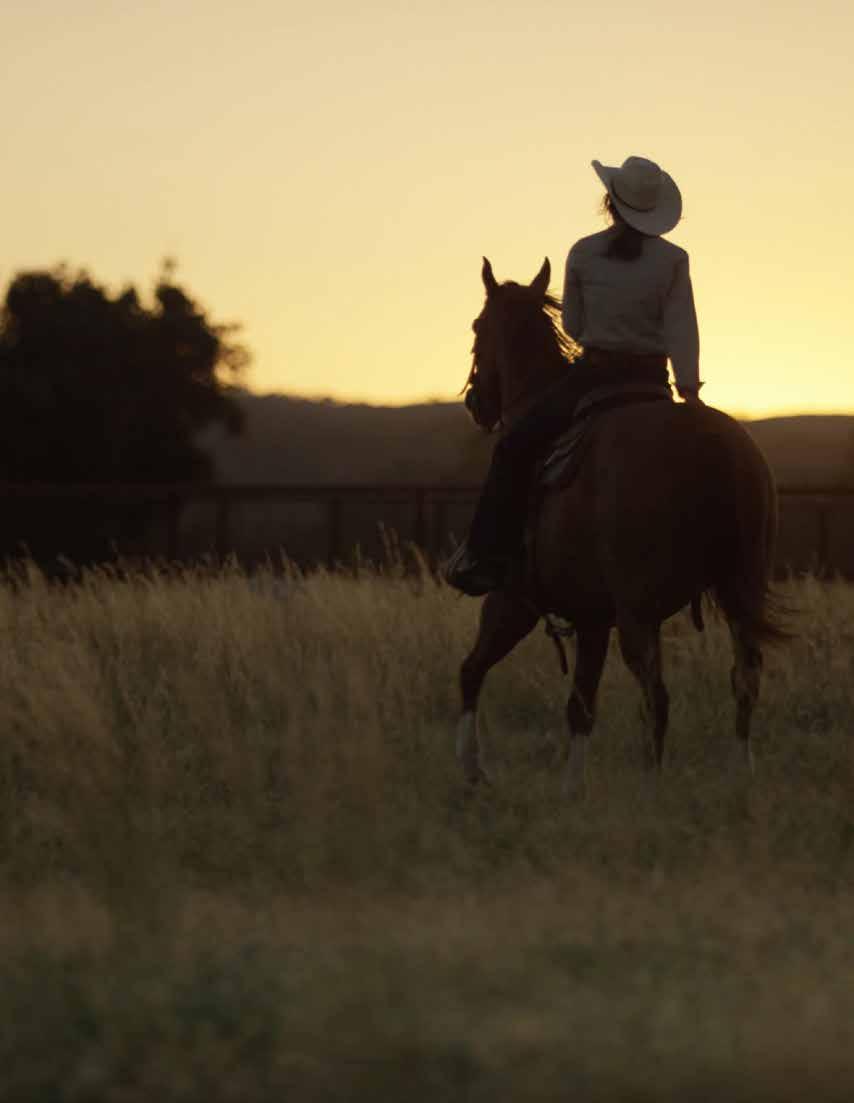
8 minute read
ASSOCIATION PERSPECTIVES
4 California Cattleman May 2020
The saying “I’ve been to a holy roller meeting, a windmill greasing and a goat rodeo, and I’ve never seen anything like this,” pretty well sums up what our nation has been through since the first of the year.
We‘ve witnessed unprecedented actions on behalf of governments, the collapse of a strong economy, opportunistic and despicable acts by politicians, polarization of a national crisis, a loss of civil liberties and at the same time generous acts of unity and charity.
Here at home, one of the impacts that has disappointed me greatly is the cancellation of our tour meetings. The county groups did a great job working with the office to eliminate conflicting dates and it looked like I would be able to make every single meeting. Depending on how long this crisis lasts, hopefully we can reschedule for summer or fall. As of the date of this column, the Cattle Feeders Meeting is likely to be canceled, and the Midyear Meeting will probably be postponed, or held on a very limited basis so we can handle business that needs consideration before convention.
As disappointed as I am about the disruption of our schedule, the disruption of the economy and cattle market that inturn causes direct impacts on our members is what gives me the greatest concern. The cattle feeders have experienced substantial losses going back to at least March. Stocker operators, who have been hampered by dry conditions all year coupled with distressed market conditions, have either already sold for a loss, or are standing by to take a pretty serious hit. Last, but not least the cow-calf folks in many parts of the state have also been dealing with drought conditions while trying to anticipate what the calf market could be like this summer and fall.
So, the $64,000 question becomes: When in the midst of a (hopefully) once-in-a-generation worldwide crisis, what do we do about it?
Well, CCA has been around for over a hundred years, mostly because of the never quit, independent and resilient attitude of cattle ranchers. We have members that grew up in the aftermath of the great depression, World War II, drought and bad markets. I myself am old enough to remember seeing the Western Livestock Journal after Nixon instituted price controls that caused cattle markets to lose half of their value. The joke was that guys tried to give cattle away, but no one would take them unless they paid the freight too.
The point is CCA, and our members, have overcome many challenges because of ranchers’ adherence to the ideology of self-reliance (i.e., not relying on the government for the success of our businesses.) So, what are we doing in 2020? Going to the government for help! Now, we all know that we get some help from the government in the form of disaster insurance and conservation programs from time to time. This, however, may be the first time we legitimately need and want government aid because, while our markets were still slightly distressed, the unprecedented actions of the federal and state governments completely decapitated the live cattle/feeder markets, and depressed the calf market by at least 15 to 20 percent. So, this time we will gladly accept some help.
So, what is CCA doing about it? Within a week of the government announcement we sent a letter to the California congressional delegation asking them to support producers and giving them some detailed suggestions. Next, staff worked closely with NCBA to support passage of the Coronavirus Aid, Relief and Economic Security (CARES) Act that has $9.5 billion for livestock, specialty crops producers, local food systems (farmers markets). It sounds like quite a bit, but it will depend on how aid is distributed. To that end, we formed an ad hoc crisis committee to gather information on estimated lost value on cattle sales since the government intervention, and discussed different ideas for structuring aid payments for each sector including cattle feeding, stocker, calf ranches and cow-calf operations.
These ideas were forwarded to NCBA’s working group going through the same process. In addition to payment structure ideas, suggestions were sent regarding tax treatment of aid payments and exempting capital gains on forced sale of livestock related to the crisis and drought, support of the agriculture labor force, transportation regulations and the availability of operating capital with low interest rates. Our priority is moving the aid out to producers, so we continue to work with NCBA to accomplish that. As you all know, government programs are not fast nor simple. There is likely to be a round four of stimulus and CCA will be working hard for the interests of California producers.
Our state has been through a lot since last year; from wildfires, to drought, and now a national crisis that will have lasting impacts on the economy and cattle markets. Honestly, it must feel like the trials of Job for many. Just as it has been for the last 100 years, CCA staff is working – albeit under quarantine guidelines – to represent and support its members. In the absence of our face-to-face meetings, please call the office if you need services or have questions. You can also check the website for regular status updates.
Together we will persevere, and rise to meet the challenges before us. The reason I feel confident in that statement is that cattle ranchers are a breed apart; independent, tough and resilient. That is why I love this way of life and the fellow ranchers I share it with. If we have faith, and remain steadfast in our values we will be rewarded like Job when this is all over. I hope all your families have faired well through this ordeal. NEVER SEEN ANYTHING LIKE THIS by CCA President Mark Lacey CALIFORNIA CATTLEMEN’S ASSOCIATION 1221 H Street Sacramento CA 95814 (916) 444-0845 ______________
Since 1917


MAY 2020 Volume 103, Issue 5
ASSOCIATION PERSPECTIVES CATTLEMEN’S COLUMN Uniting during times of uncertainty

4
BUNKHOUSE A time that will go down in history
8
YOUR DUES DOLLARS AT WORK CCA COVID-19 response
18
HERD HEALTH CHECK 24 Things to consider before sending calves to sale
CHECKING IN ON YOUR BEEF CHECKOFF 34 Crisis management at the California Beef Council
PROGRESSIVE PRODUCER FARM Club hosts producer symposium
36
SPECIAL FEATURES Auction yards working for producers Direct meat-to-consumer marketing Early COVID-19 impacts on beef prices
READER SERVICES CCA Executive Committee 2020 CCA Livestock Market Directory Buyers’ Guide Obituaries New Arrivals Advertisers Index 14 22 32
13 28 38 44 45 46
This month’s cover photo was taken by ranch and outdoor photographer Kenny Calhoun at Yocha Dehe in Yolo
County. To see more of Calhoun’s work, visit: www.kennycalhounphotography.com.
This May issue features California livestock auction markets and contains a directory for current marketing dates up and down the state.

UPCOMING CCA MEETINGS & EVENTS May 20-22 California & Arizona Cattle Feeders Meeting — Canceled —

As the COVID-19 situation evolves, please watch for updates from CCA on social media, the website, Legislative Bulletin, the Hot Irons newsletter or this magazine.
For questions about specific events and local meetings, contact the CCA office at (916) 444-0845.
SERVING CALIFORNIA BEEF PRODUCERS SINCE 1917 Bolded names and businesses in editorial represent only current members of the California Cattlmen’s Association or California CattleWomen, Inc. For questions about your membership status, contact the CCA office at (916) 444-0845. The California Cattleman is published monthly except July/August is combined by the California Cattlemen’s Association, 1221 H Street, Sacramento, CA 95814, for $20/year, or as part of the annual membership dues. All material and photos within may not be reproduced without permission from publisher.

Resilience Keeps Us Strong

Over generations, catastrophic disasters, both natural and man-made, have shaped our livelihoods and our operations. In the end, our resilience helps us adapt and always makes us stronger.
The COVID-19 pandemic has tested California like never before and as we emerge from this crisis, we must thank those who put themselves in harm’s way to protect our communities and our most vulnerable. California’s first responders, emergency room nurses and doctors – many from the cattle community – put themselves at great risk to protect the vulnerable, and they deserve our respect and gratitude.
Just as cattle ranchers emerge from disasters like drought, floods, wildfires and recession stronger than before, history will reflect that our shared resilience as Californians united and defined who we are as a community.
I’m proud that the California Cattlemen’s Association and our members continue to provide a safe, plentiful supply of beef to nourish families and keep them healthy during this very difficult time.
There is no doubt we will emerge from this darkness inspired by the resilience of our first responders, the ranching community and of our neighbors.
As we continue to monitor the situation, look for updates on our Twitter, Facebook and Instagram pages and follow the hashtag #ResilientRanches.
Stay safe. Stay resilient.

resilience [re • sil • ience] noun an ability to recover from or adjust easily to misfortune or change

For California cattle ranchers, resilience is more than a word, it’s who we are.
That resilience has allowed us to adapt in the face of adversity while continuing to produce safe, environmentally sustainable, and nutritious food for our neighbors.




